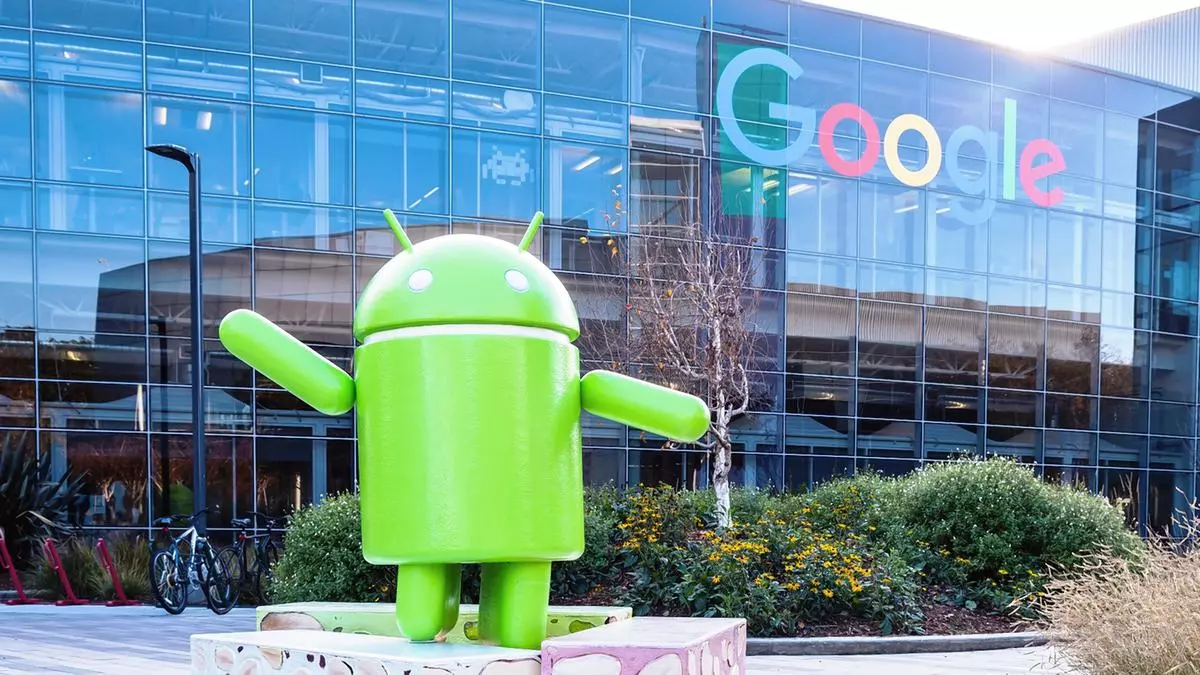Google Fight Back: CCI’s Android Order Overturned by NCLAT Due To Flawed Investigation
NCLAT overturns CCI's Android order after Google's appeal citing flawed investigation

A judgement had been handed down by the Competition Commission of India (CCI), which would have required Google to investigate claims of antitrust infringement in Android by the year 2020. On the other hand, the National Company Law Appellate Tribunal (NCLAT) has recently decided to reverse this judgement.
Google stated in its appeal to the NCLAT that the CCI’s finding was based on an improper investigation that was carried out by the Indian banking and financial services business CCI. Google’s appeal was in response to a ruling that the CCI had issued. The NCLAT came to the same conclusion as Google, which was that the investigation conducted by CCI contained a number of methodological errors.

Introduction
During the course of its history, Google has been the focus of a significant number of antitrust inquiries as well as legal proceedings in a variety of nations. After being asked by the Competition Commission of India (CCI) to look into possible antitrust violations in India, Android became the centre of attention.
Consumer Unity & Trust Society (CUTS) recently lodged a complaint with the Competition Commission of India (CCI), alleging that Google is abusing its dominant position in India’s smartphone market by compelling OEMs to pre-load specific Google apps.
The complaint was filed with the Competition Commission of India (CCI). The CCI was able to better determine how to proceed because of the specifics included in the complaint.

Flaws in CCI’s Investigation
The CCI asked the CCI to look into what CUTS said, and the CCI agreed. Google argued that CCI’s research was flawed because it relied on faulty assumptions and lacked sufficient evidence. CCI’s research was criticised by Google for these two reasons.
CCI, according to Google’s assertions, failed to take into account the fact that Android is a free and open-source platform that is accessible to everybody. This, as far as Google is concerned, means that manufacturers of Android phones are not obligated to pre-install any of Google’s apps by default.
Google claims that CCI did not take into account the potential benefits to customers that could come from having Google applications pre-installed on their mobile devices.
For example, Google asserts that by combining its web browser and search engine into a single package, the company has made it easier for users to find the material and services that are relevant to them.
Google has also said that its voluntary arrangements with smartphone makers to pre-install apps do not break any antitrust laws. These agreements are to pre-install Google’s own apps on the manufacturer’s devices.

Google’s Response
Google has filed an appeal with the NCLAT in response to the CCI’s ruling and the CCI’s inquiry. Google argued in its appeal that the CCI’s order should be rejected since it was based on an insufficient probe by CCI. Google also stated that the CCI had not provided evidence of antitrust violations.
The request from Google brought up several significant points. Second, the company claimed that the CCI’s order was erroneous because it falsely believed that Google held a monopoly on the Indian smartphone market. Android is an open-source platform that all smartphone manufacturers can use, and smartphone manufacturers in India are in fierce competition with one another, according to Google.
Google, however, stated that the CCI’s judgement was incorrect because it misrepresented how Google collaborates with smartphone manufacturers. Google claims that the agreements it makes with smartphone manufacturers are entirely voluntary and do not prevent customers from using alternative search engines or web browsers.
Google stated that the CCI had not demonstrated that it had violated any actual antitrust legislation. Google has stated that there is no evidence that putting its apps first on Android phones harms competition and that the practise actually benefits consumers.

NCLAT’s Decision
The NCLAT issued its decision regarding Google’s appeal during the month of January 2022. The NCLAT said that Google was justified when it stated that the order that was issued by the CCI should be annulled due to the flawed investigation that was conducted by the CCI. The NCLAT stated in its judgement that it had told CCI that its investigation had a number of errors.
Secondly, the NCLAT came to the conclusion that CCI made inaccurate assumptions about the size of the smartphone market in India. The National Company Law Appellate Tribunal (NCLAT) asserts that Android is a free and open-source platform that is readily available to all smartphone manufacturers in India.
This is because there is a lot of competition in India’s market. The NCLAT also observed that users of Android had a selection of options to choose from when it came to web browsers and search engines.
Second, the NCLAT decided that CCI did not take into account the benefits that some smartphone consumers would receive from having Google applications installed by default.
This was one of the reasons why the NCLAT made this decision. The NCLAT suggests that having Google apps already installed on a device can improve the user experience by making it simpler for users to obtain the information and services that are pertinent to their needs.

At the conclusion of the case, the NCLAT concluded that CCI had failed to demonstrate that antitrust rules had been breached. CCI‘s argument was that the rules had been violated. The NCLAT found no evidence to support the claim that customers are harmed by the fact that Android smartphones come pre-loaded with Google’s apps. Instead, it was found that it was beneficial to them in some way.
As a direct result of the ruling made by the NCLAT, Google would no longer be required to defend itself against accusations of unfair competition in India involving the Android operating system.
The decision highlights the need to conduct thorough and accurate investigations in antitrust proceedings. This is due to the fact that results based on insufficient evidence may be inaccurate or biased.

Implications for Antitrust Enforcement in India
The judgement in the Google case will have a substantial influence on the way in which antitrust rules are enforced in India. It is of the utmost importance that antitrust procedures include thorough and comprehensive investigations.
This is due to the complexity and quick expansion of certain markets, such as the market for smartphones. When considering whether or not an antitrust violation may have occurred, the ruling highlights how important it is to take into consideration the benefits of innovative products and services, such as apps that come pre-installed on a device.
This ruling in no way suggests that India’s antitrust rules are ineffective or that they are not enforced properly.
Recent years have seen the Competition Commission of India (CCI), a significant and active antitrust regulator in India, pursue a number of high-profile legal enforcement proceedings.
When figuring out if antitrust laws have been broken, the NCLAT’s decision in the Google case may help regulators and investigators remember how important it is to do thorough investigations and take into account all information that is relevant to the question at hand.

Conclusion
The judgement in the Google case will have a substantial influence on the way in which antitrust rules are enforced in India. It is of the utmost importance that antitrust procedures include thorough and comprehensive investigations.
This is due to the complexity and quick expansion of certain markets, such as the market for smartphones. When considering whether or not an antitrust violation may have occurred, the ruling highlights how important it is to take into consideration the benefits of innovative products and services, such as apps that come pre-installed on a device.
This ruling in no way suggests that India’s antitrust rules are ineffective or that they are not enforced properly. Recent years have seen the Competition Commission of India (CCI), a significant and active antitrust regulator in India, pursue a number of high-profile legal enforcement proceedings.
When figuring out if antitrust laws have been broken, the NCLAT’s decision in the Google case may help regulators and investigators remember how important it is to do thorough investigations and take into account all information that is relevant to the question at hand.
Edited by Prakriti Arora



